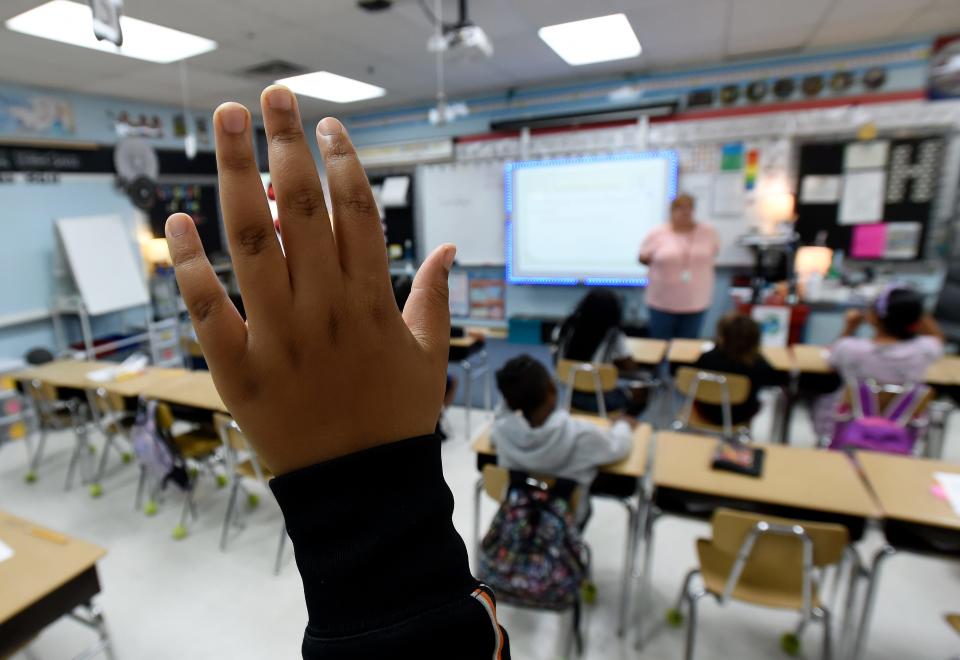Summer school isn't the solution for improving third-grade literacy | Opinion
The end of the school year is typically a time for celebration – graduations, award ceremonies and the promise of a relaxing summer. This year has felt different for 60% of the state’s third-graders, who are instead learning they did not pass the English language arts section of the state’s standardized test. According to a new state law, those students who scored “below expectations” are forced to either repeat third grade or spend their summer in a district-run summer learning camp.

At first glance, this might seem like a good thing. Literacy is a necessity in the 21st century, and these camps could provide students with the additional support they need to improve their reading. Yet a new study from the Tennessee Education Research Alliance raises concerns about whether these learning camps will help these students.
The study examined the effectiveness of summer learning camps run by 10 districts in 2022. Because the camps were targeted towards students needing additional academic support, it is not surprising that students attending the camps had lower spring test scores on the Tennessee Comprehensive Assessment Program, also known as TNReady, than students who did not attend.
Counterpoint: Tennessee remains committed to improving student literacy | Opinion
Hear more Tennessee voices: Get the weekly opinion newsletter for insightful and thought-provoking columns.
A better measure of effectiveness is to compare test scores after the summer. If the camps were effective, the gap between these two groups of students would decrease. Instead, the gap widened. The literacy scores for students who didn’t attend a learning camp rose 1.8 percentile points, while the scores for students attending the camps rose only 0.6 points.

While initially surprising, the negligible positive effects of summer learning camps make some sense. First, the existing school curriculum is already not serving these students at risk for retention. Requiring those students to simply attend more days of schools is unlikely to make a substantial difference. Further, students who don’t attend the learning camps likely aren’t just sitting at home. Instead, many are attending other camps – including those for robotics, art or dance – that boost literacy learning by building background knowledge, vocabulary and problem-solving skills.
To be sure, there are more differences between these groups than how they spent their summer. Most notably, students attending summer learning camps were disproportionately from underserved groups, including Black students and students identified as economically disadvantaged. Still, these results should concern us, given that the state is now requiring students to attend one of the camps or repeat third grade.
If SLCs and threats of retention are not the answer, what is a better approach? Rather than prescribing more time in the classroom, policy might shift to what is happening outside of school. Study after study has confirmed the substantial role of out-of-school factors on academic achievement, and nearly all these factors are rooted in poverty and racism. In order for kids to thrive academically, they need effective schools, but they also need high-quality health care, stable housing and access to nourishing food. Their parents need jobs that pay a living wage. They need to live in communities with green spaces free from pollution.
The policy changes required to truly support all Tennessee children cost a lot more than summer learning camps or retention, solutions that children by forcing them to repeat the same academic experiences that haven’t worked for them. Until our government is willing to deal with the root causes of educational inequity, Band-Aid solutions like these will continue to prove ineffective. So while more privileged children spend their summer at pricey summer camps where they can explore, play and learn, the most marginalized children in our state will be forced to spend their summer in a classroom, repeating curriculum that is already not serving them.
Laura Taylor, Ph.D., is an assistant professor of educational studies at Rhodes College in Memphis.
This article originally appeared on Memphis Commercial Appeal: Opinion: Summer school isn't the way to improve 3rd-grade literacy

